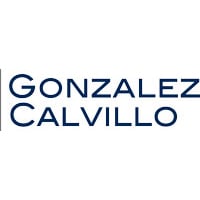

Partner | Hogan Lovells



Lewis R. Cohen
Partner | Hogan Lovells
Law school attended: Benjamin N Cardozo School of Law (JD), Clark University (BA) Principal practice areas: Asset Finance, Aviation Finance, Derivatives and Structured Products, Securitization, Structured Finance Admissions: New York
Consistently at the forefront of international capital markets work, Hogan Lovells’ finance partner Lewis Cohen has undertaken a number of ‘global firsts’, including the first SEC-registered cross-border, asset-backed securities offerings, and the first covered-bond issued out of Latin America. His career-long involvement in the sector has, he says, helped him develop a more flexible and commercially-minded approach to legal structures: ‘Doing deals in China, India and Europe is extremely useful when advising Mexican entities. I have worked in a number of different countries and encountered many permutations on how non-US issuers approach rigorous US capital markets structures. That experience is very valuable in understanding how your role as a lawyer can add value to a deal rather than simply help a client cover compliance requirements.’ Cohen’s work in Mexico is most notably associated with the FIBRA sector, which he helped pioneer through his frequent representation of Latin America’s largest real estate investment trust, FIBRA Uno, including acting as principal US counsel on its IPO. His broad experience of capital markets was critical, he suggests: ‘Until recently, many deals in Mexico relied on the international capital markets, and because the US has such a well-established real estate market it tended to dominate the way deals were done. For example, the way in which disclosures were prepared was clearly derived from US capital markets. I had long history of working on structured finance matters in Mexico, along with a substantial expertise in securitization. That really helped me approach the FIBRA space with an open mind-set.’ Cohen has since advised three of the largest FIBRAs in the Mexican market and continues to act on FIBRA Uno’s capital markets work. He has also been developing his practice to deal with legal issues arising from fintech and blockchain, which he sees as an area of fundamental importance for Latin American corporates that deal with US markets. Are there any sectors you regard as likely growth areas for the Mexican market over the next five years? I hate to say it, but restructuring work is likely to be a growth area for lawyers in Mexico. Of course, there will be opportunities for Mexican corporates once the new US administration settles on its approach, but there will also be business models that are unable to adapt quickly enough and will need to be restructured. Energy is also likely to be another big growth area. There is going to be a tremendous need for capital in the energy sector and Mexico will have to find new ways to bring it in and make it work. Finding ways of bringing external capital – either as debt or equity – into Mexico, particularly in energy and infrastructure, will be a huge thing for investors and lawyers. As a firm, Hogan Lovells is well placed to capitalise on this. We have a large, established presence in Mexico and that is critical to success in these deals. You really need people who have worked across different jurisdictions and who can see the issues that investors are likely to face and know how to help them.